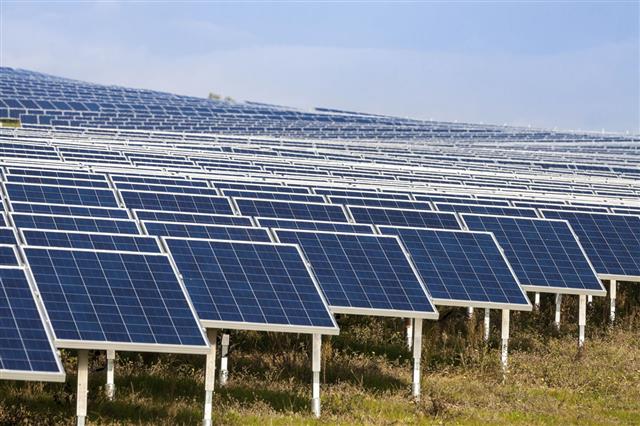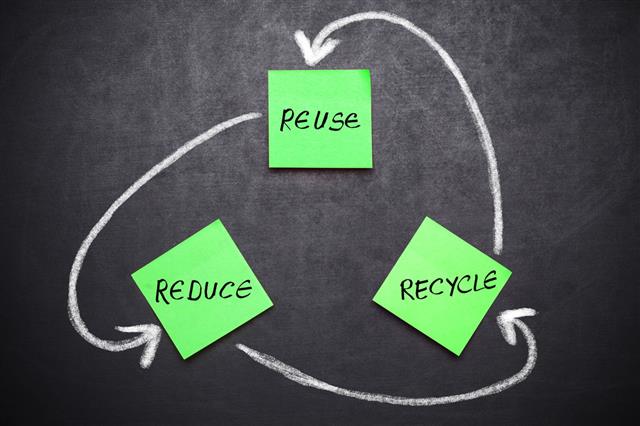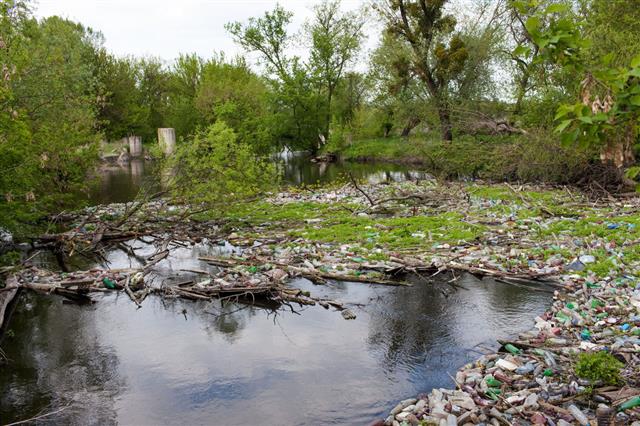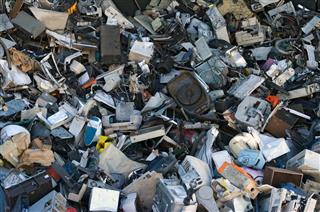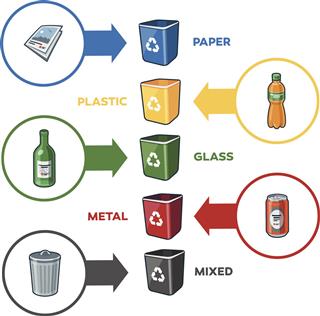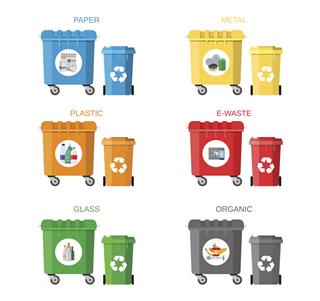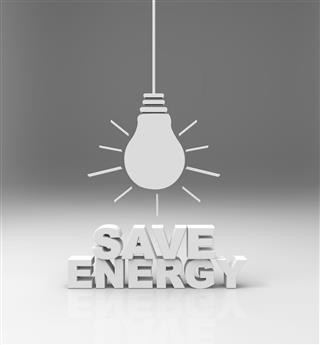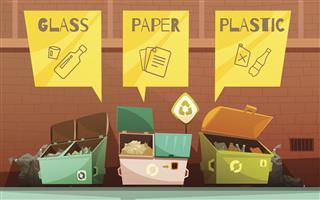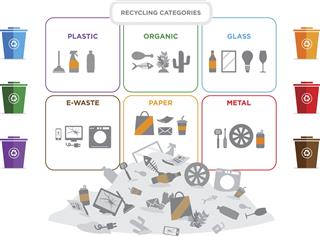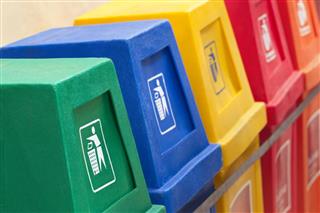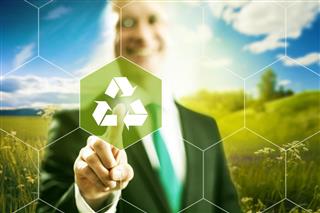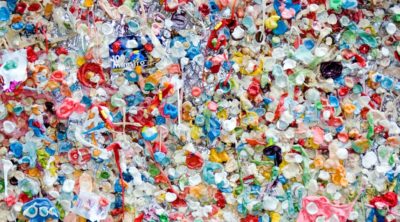
Recycling involves the processing of used material, for re-manufacturing it into useful products. There are both positive and negative effects of recycling on the environment.
Recycling Quote
What exercise is to health, recycling is to environment. ~ Anonymous
Recycling is the processing of waste materials in order to make them reusable. This helps conserve energy and reduce the consumption of natural resources. Recycling used products is one of the best ways to save the environment. It is important to recycle, so as to avoid environmental harm. Used plastic bottles, glass, and newspapers can be effectively recycled to make useful items.
Positive Effects of Recycling
Preserves the Environment
The process of recycling protects the environment. With the world witnessing a global environmental decline, this can be considered as one of the most important benefits of recycling. As we all know that paper is manufactured from trees. As the demand for paper increases, a number of trees are being cut to produce paper. By recycling paper, we can prevent the destruction of forests. Today, a number of forests are being destroyed to meet the ever-increasing demand of paper. Recycling a ton of mixed paper or newspaper, is equivalent to saving 12 trees. A significant 74% drop in air pollution is observed if paper is made from recycled material as opposed to new wood pulp, indicating that recycling paper is environmentally friendly. Given that the trees keep the surrounding environment clean by sucking up carbon dioxide from the air we breathe, it would be wise to use recycled paper as much as possible.
Studies show that around 28000 liters of water, 4000 kw hours of electricity and 2 barrels of oil are utilized for producing one ton of new paper. Moreover approximately 2200 pounds of solid waste is generated during this process. Did you know that 20% of logs (that involves cutting of trees) collected from the forest area of the world are reserved for producing new paper. Shocking statistics! Isn’t it? Thus, making one ton of new paper needs a number of resources amounting to 98 tons. No wonder, producing new paper is indeed a burden on our resources.
Importing Garbage – What the Heck!
Sweden is one of the few countries that support extensive recycling program, ensuring 90% of household trash is converted into renewable energy. Managing trash is no longer an issue for Sweden, thanks to its effective recycling systems. So successful has been their waste management technique that the country has been facing a shortage of garbage to operate their recycling facilities. To overcome this trash deficit, Norway (neighboring country) is now exporting its waste to Sweden. If this was not enough, Sweden has now decided to collect 0.8 million tons of garbage every year from other European countries.
Saves Energy
Processing raw materials consumes a considerable amount of energy resources. Recycling used materials reduces energy requirements in many manufacturing processes such as refining and mining. Recycling materials like aluminum and glass can greatly reduce the pressure on energy resources. This can be gauged from the fact that the energy requirement for recycling aluminum cans reduces by 95% when compared to conventional methods of manufacturing brand new cans. Recycling an aluminum can conserve as much energy as is used to keep a television set ON for 3 hours. The amount of energy saved in recycling a glass bottle can allow you to operate a computer for 25 minutes.
Recycled Products are Budget Friendly
Buying a brand new item is always costlier than a product that is made by recycling. To be precise, recycled product would not make a dent to your pocket, the way a new one does. Recycled products are affordable for the supplier as well as for the customer. Companies involved in manufacturing recycled items can afford to sell them at a budget-friendly price as the production cost is not high. So, customers can certainly cut down their monthly expenses by opting for recycled products.
Reduces Pollution
Pollution means the introduction of hazardous substances in the form of plastics, empty cans, chemicals and ordinary waste into the environment. These substances contaminate our environment. Plastic waste is responsible for causing increased soil and water pollution. Plastic recycling is an effective solution to this problem. The recycling process involves recovering used materials from the plastic waste, which is then used in the manufacturing industry.
Recycling can also help reduce the amount of greenhouse gas emissions, thereby helping to mitigate global warming effects. In a study that involved recycling 35,116 tons of material, it was found that the reduction in green gas emissions was equivalent to taking 22,140 cars off the road. Using recycled aluminum is definitely one step closer to protecting the environment. This is because recycling a ton of aluminum means a reduction of 12 tons of carbon dioxide emissions.
Lowers Carbon Footprint
Manufacturing plastics and paper from recycled material, requires less amount of energy as compared to making them from new. Additional energy is consumed to extract and transport these virgin materials. Transportation means using vehicles that run on fuels like diesel and gasoline. As recycling conserves energy, this results in less fuel being utilized. Thus, a lower amount of carbon dioxide will be released into the environment.
Conserves Natural Resources
Recycling can also help to prevent indiscriminate use of natural resources. For instance, recycling a ton of steel means saving approximately 2500 tons of iron ore, a fast depleting natural resource on a global scale. Plastic that is often used to make bottle, requires considerable amount of fossil fuels. Consider this; 17 million barrels of crude oil is being utilized every year to make plastic in United States. By recycling plastics, several tons of fossil fuel can be saved for other purposes.
Reduces Landfill Use
Landfills, the dumping grounds for trash have been overflowing in many countries due to excessive use. People living in the vicinity of such poorly run landfills are at great health risk as it causes severe air pollution. However, by simply starting new recycling centers, the amount of garbage disposed at landfills will reduce considerably. Thus, recycling a large percentage of landfill waste could help to reduce environmental issues and ease the burden on these dumping sites.
Improves Employment Prospects
In addition to reducing carbon footprint, recycling could provide employment opportunities. In a new study, it has been estimated that approximately 1.5 million people in United States could get jobs if the country decides to recycle 75% of its garbage. Recycling is a step-by-step procedure and requires enormous manpower at each stage of the recycling process. Presently, United States recycles around 34% of its garbage but if it is increased to 75%, employment will definitely get a boost.
Negative Effects of Recycling
Are there any harmful effects of recycling? There can be a few, if the sites, where recycling is done, are not managed properly. As lot of debris is collected everyday for recycling, the recovery sites can become unhygienic. Abandoned dump sites can severely damage the surrounding environment. Harmful chemicals in the trash, can mix into water and soil. This can cause water and soil pollution and harm plants and fish in the streams and lakes. When it gets mixed with rainwater, a poisonous mixture known as leachate, is formed. This mixture can be highly dangerous if it reaches the water supplies. When rainwater falls on open dumps, most of the contaminated water (leachate) percolates deep into the ground and pollutes the ground water.
The issues with the effects of recycling paper are often associated with cleanliness and transportation. Paper recycling can be a bit costly, as additional industrial processes such as bleaching, are required to make the paper reusable. There is no guarantee that the new recycled product obtained will be of good quality. This is because recycling involves manufacturing products from used materials. Also, in the process of bleaching, harsh chemicals are used that can cause health problems on exposure. Although many find plastic convenient for everyday use, it is quite difficult to recycle this material. There are different kinds of plastic and one has to sort them systematically so as make a useful recycled product. One cannot simply manufacture a new product by combining different kinds of plastic.
However, it is observed that benefits of recycling outweigh the risks related with the mismanagement of dump sites. The government is also implementing effective waste management. So everyone who wants to preserve and protect our planet, must take the initiative to recycle waste material. Taking everyday trash to your nearest recycling center can definitely make a positive impact on the environment.
Well-operated recycling programs are unlikely to cause any harm to the environment and will only help to preserve the flora and fauna of our planet.

